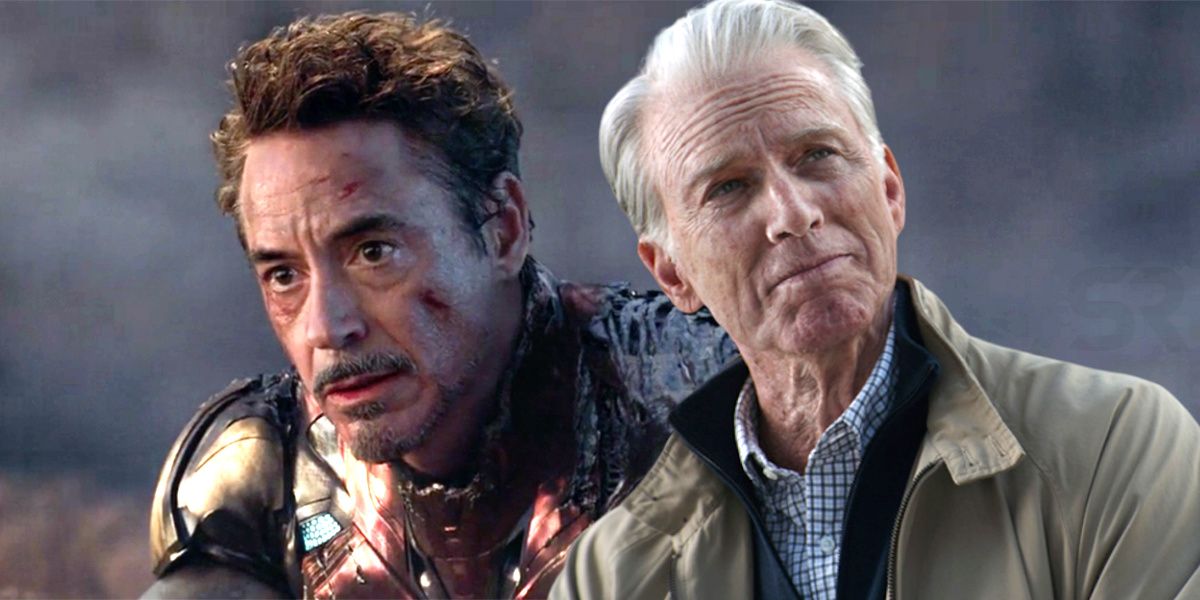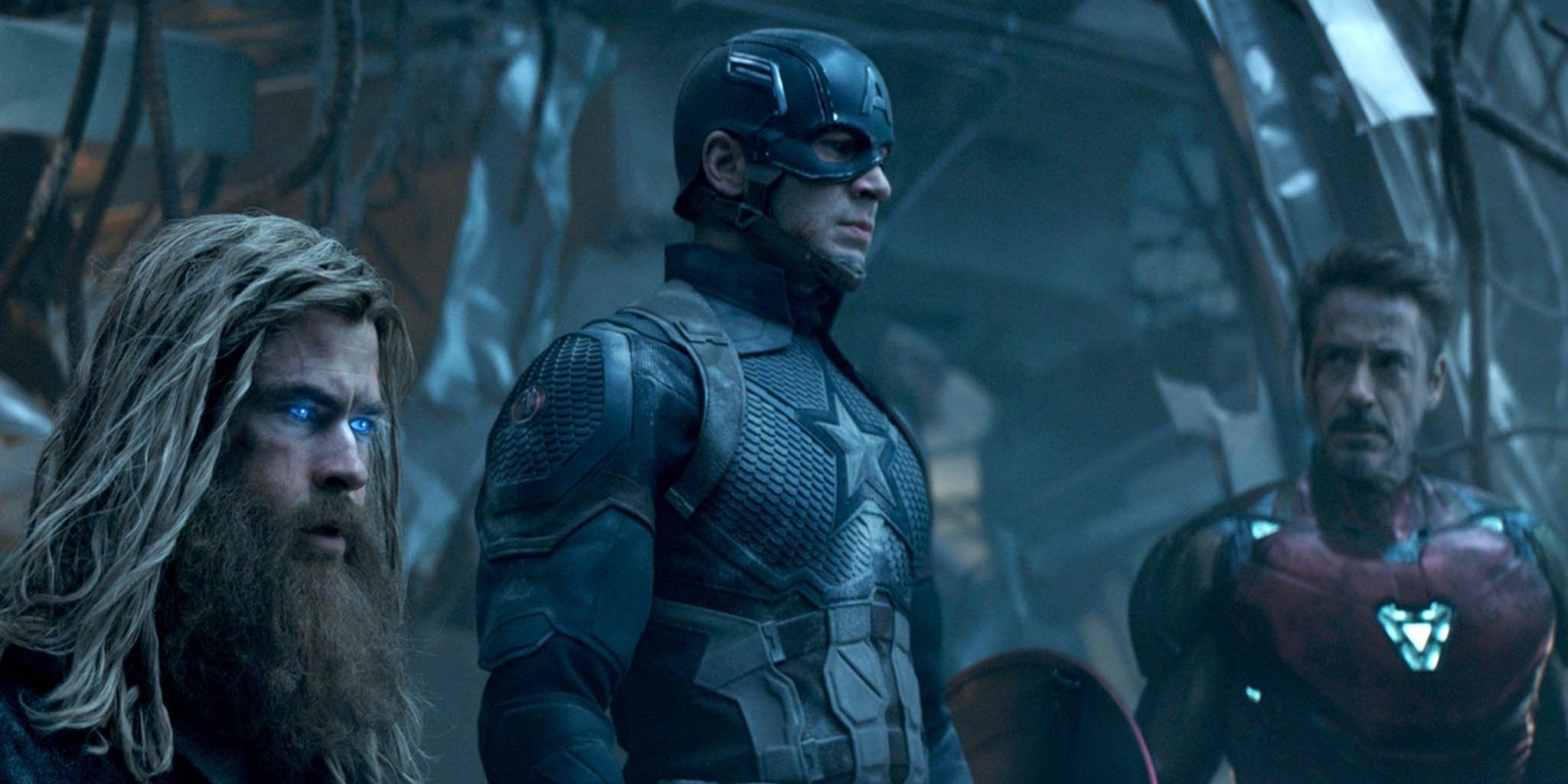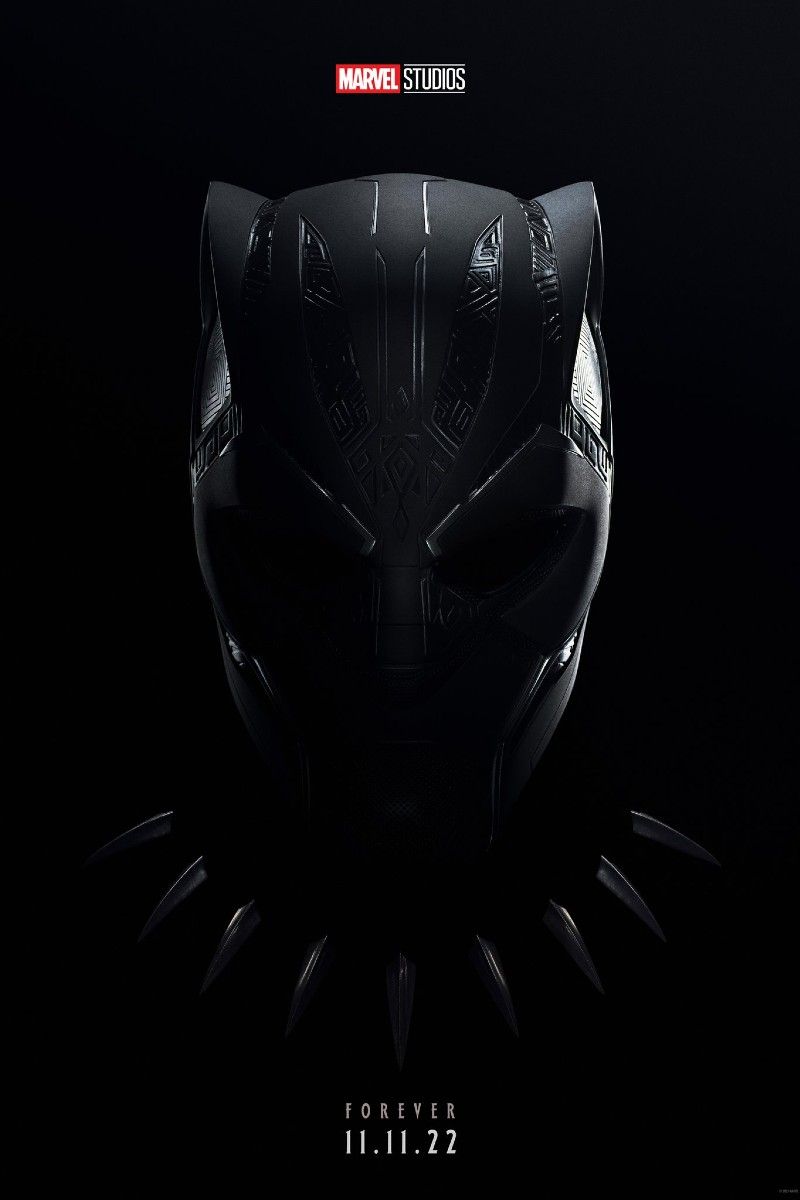Marvel Studios' Avengers: Endgame writers explain why Tony Stark aka Iron Man (Robert Downey Jr.) had to die instead of retiring in the Marvel Cinematic Universe movie and Steve Rogers aka Captain America (Chris Evans) had to live. While Iron Man is the founding father of the MCU, having starred in the franchise's very first film, Captain America was one of Marvel's big three heroes alongside Thor by the time 2012's The Avengers hit theaters. The differing arcs of Tony Stark and Steve Rogers are a major throughline of the Infinity Saga and both came to a close in Avengers: Endgame.
For his part, Iron Man sacrificed himself in Avengers: Endgame, marking the end of his character arc from selfish tech genius to true hero. It was an incredibly emotional moment for audiences and a pivotal one for Tony Stark's character, giving him a conclusion in the film. Meanwhile, Steve Rogers used the team's time travel capabilities to return the Infinity Stones to their points in the timeline, then decided to live out his life with Peggy Carter (Hayley Atwell). Steve resurfaces in the present-day MCU as old Captain America, passing on his shield to Sam Wilson (Anthony Mackie). The movie closes out Steve Rogers' character arc, but keeps him alive in the MCU. Now, the film's writers chime in on their reasoning for these endings.
Speaking to Vanity Fair about the process of writing both Avengers: Infinity War and Avengers: Endgame, Christopher Markus and Stephen McFeely were asked about Iron Man and Captain America's endings. The writers explained that Endgame needed finality in order to close out the Infinity Saga, and if Iron Man remained alive, then Iron Man 4 with Downey Jr. would always be a possibility. McFeely went on to explain:
We realized over the course of the movies, that Cap and Tony were on crossing arcs. Cap, who had started as completely selfless and was jumping on grenades willy-nilly, was becoming more self-interested. Not to say selfish, but if you watch Civil War, particularly, he's making decisions based on what he wants, even if it breaks up the Avengers. And Tony started as the brash billionaire playboy, and the stakes are growing for him, the responsibility's growing for him. We realized at one point, late in 2015, that for Steve to be his best self, he was going to have to get a life and for Tony to be his best self, he might have to lose his.
Building off McFeely's comment, Markus drove the point home regarding why it made more sense for Captain America to be alive at the end of Avengers: Endgame, saying, "And that's why [Captain America] can't die in this movie, because he was willing to die in the first one. That's not a journey." The writers' explanation highlights why exactly they decided on these particular endings for Iron Man and Captain America, concluding their respective arcs in ways that made sense, and in ways that assured there had been development of both Tony and Steve's characters. As Markus notes, killing Captain America in Endgame would've reverted the character back to who he'd been even before the super soldier serum, which isn't as interesting as making him more self-interested.
Of course, there are MCU fans who think having Steve give up his life in the modern-day - and his friends Sam and Bucky Barnes (Sebastian Stan) along with it - as an unearned reversion for the character. In Captain America's modern-set movies, Sam and Bucky are bigger driving forces for Steve than Peggy, so some fans argued it didn't make sense for Steve to give them up in order to return to the 1940s. However, Markus and McFeely do have a point that Steve making a more selfish choice at the end of Avengers: Endgame showcases Evans' character's transformation in the MCU.
As for Iron Man, fans were do doubt saddened to see Tony Stark sacrifice himself, but it was a satisfying conclusion to the character's arc. Though Tony became a superhero in 2008's Iron Man, he often struggled with doing the right thing and, as Cap accused him in The Avengers, he's "not the guy to make the sacrifice play." But Iron Man doing just that, making the sacrifice in Endgame, proves how far he's come. While fans may have issues with Iron Man and Captain America's endings in Avengers: Endgame, they were undoubtedly emotional events and the MCU won't be the same without either hero.
Source: Vanity Fair








